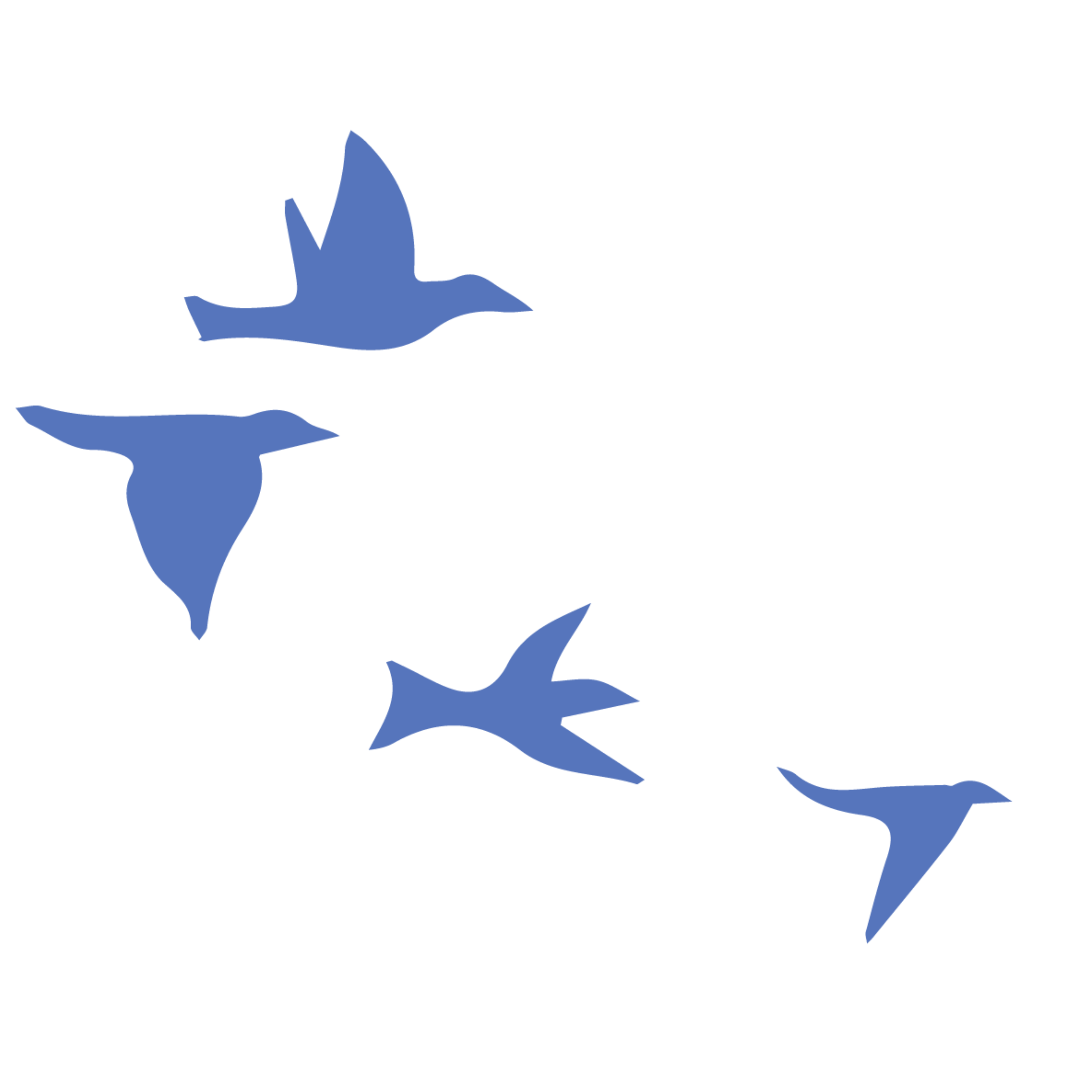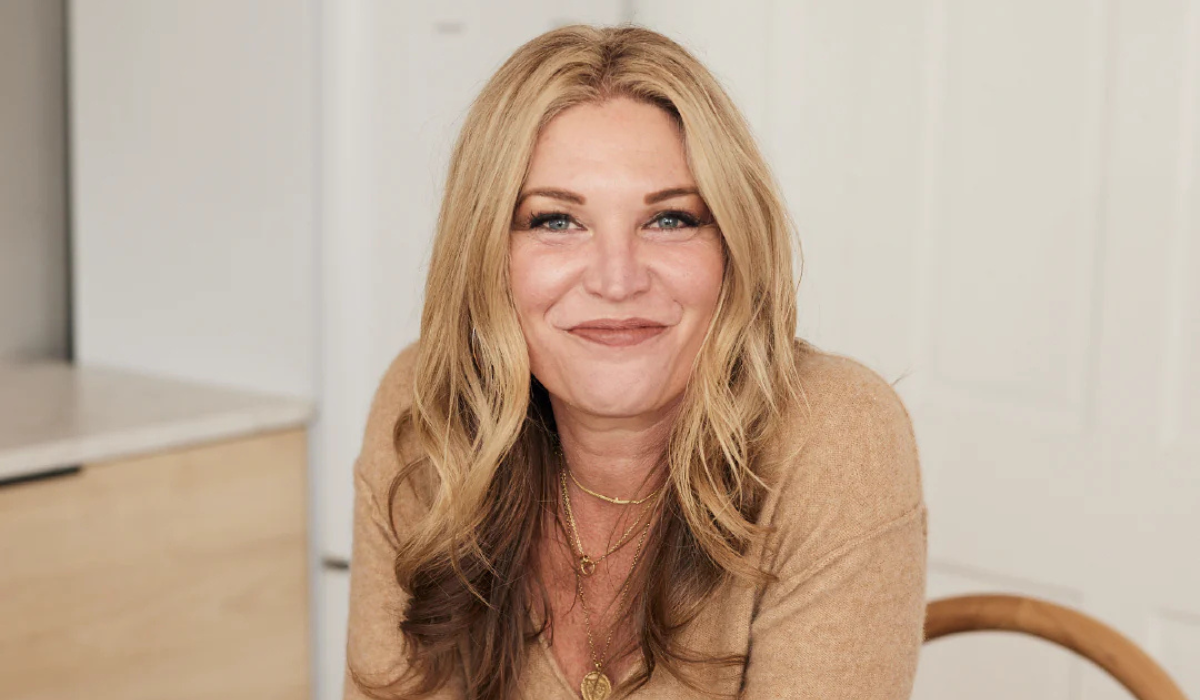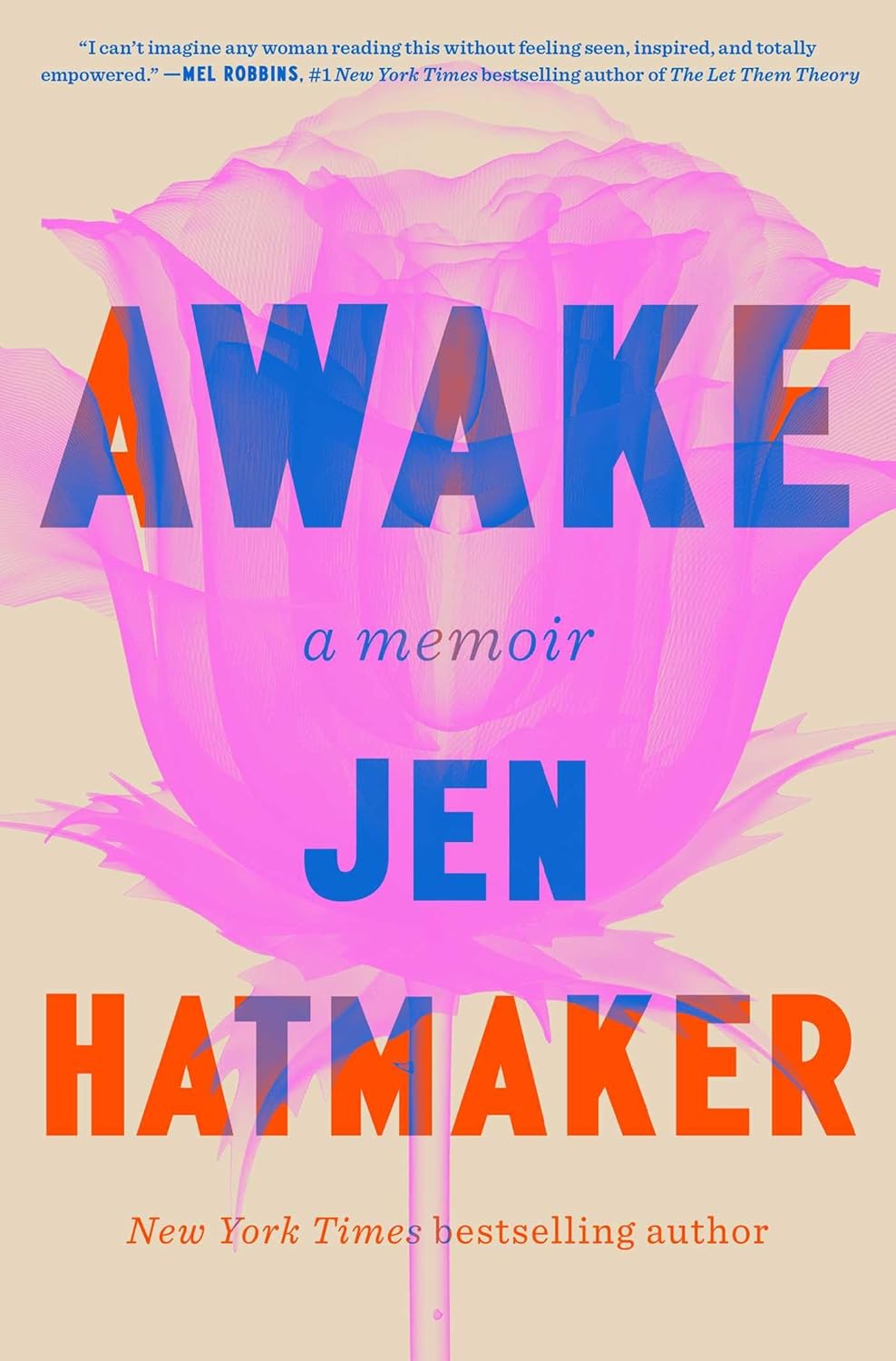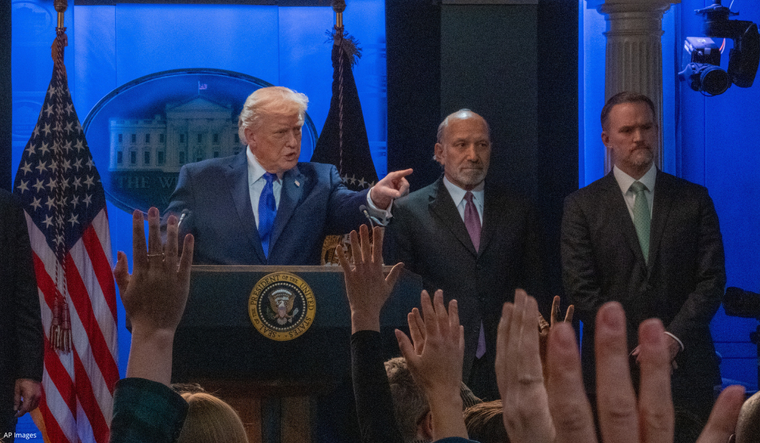What Do You Do When Life Falls Apart?

Jen Hatmaker’s life seemed like a dream. Then one night, that dream shattered.
In mid-2020, Hatmaker awoke at 2:30 am to hear her husband of 26 years—her partner since she was a teenager and the dad to their five kids—texting his girlfriend. “It was almost a disembodied, disassociated response to finding out that everything that I thought was true about my marriage was a lie,” Hatmaker tells The Sunday Paper about how she felt after the discovery.
One might think it impossible to put words to the heartbreak Hatmaker felt. But being the writer she is, and an author of more than a dozen books (including several New York Times bestsellers), she found a way. Her new memoir, Awake, is so stunningly candid that it reads with a rawness normally only found between lifelong friends. Hatmaker lays bare her pain as much as she does her complicity. She pulls at the threads of the religious systems that informed her upbringing and identity, allowing her heart to open toward new ways of being.
With Awake, Hatmaker lets us into her story of unraveling and renewal. But even more, she offers us the truth: That no matter how colossal life’s cruelties may be, our capacity for healing, growth, and beauty is even more immense.
A CONVERSATION WITH JEN HATMAKER
Near the beginning of your book, you write: "So this is what it looks like when a life unravels in real time. It is quieter than I expected." Now, years later, how does it feel hearing your words read to you?
That sentence puts me back in a haunted place. That was ground zero. That was the Day of Discovery. Anybody who understands the term' Day of Discovery' needs no explanation. Watching that, this is actually what is happening in my life now. It's not what I thought was happening. It's not what I wanted to be happening. This is what's happening outside of my purview. And it was so weird, because for me, it was the middle of the night, and my kids were upstairs asleep. Everything felt so ordinary. I just remember sitting there thinking, How could everything be so ordinary right now when my life is falling apart in front of my eyes in real time?
What you're saying speaks to what's often experienced in the face of loss, whether it's a death, an infidelity, a drastic change, or something else. We think, How can the world keep going on when this has just happened?
It's almost mean. It feels mean-spirited that someone next door to me would get up the next day and go to work. I'm like, How dare you? How could anybody drive to the grocery store the next day? It just feels so impossible. And to your point, that was my moment. It had to do with my marriage, but I'm 51, and I hardly know anyone right here, in the middle of life, that doesn't have something where they could fill in a similar blank. Where something was lost, shocking, or fell apart. So, I always tell people that this is Awake. It's my small story, but it is nestled in a much bigger story that most people will find a way to relate to on one level or another. And if you don't, just live a little longer and you will.
It's easy to get caught in the victim triangle, where we feel we're the victim of something happening to us. You're honest about how your codependency and how you were so triggered by your ex-husband and how he lived his life, for a long time. But you did a lot of self-work around this, including looking at the part you played. What have you learned that you're willing to share?
I loved that trope in the beginning. I cherished it. Victim, villain. Black, white. It was so easy. I just clung to it with both hands, that there was a trope out there willing to absolve me of whatever contribution I made here and be on my side. I wanted sides. I was so hurt and shocked that, for a while, that narrative was comforting. But after going long enough, you realize this isn't serving me—and it's not fair, nor is it true. That is not to say that on any level I am absolving any of his choices or his decisions. They were catastrophic and caused trauma for our entire family, our extended family, our community, everybody. So that's not a free pass on somebody else's toxic and dysfunctional behavior. However, I went long enough where I got over the hump of that initial grief and began the work of healing.
It was my counselor who just so rudely kept suggesting that I had some patterns to look at. I was like, 'That is not why I am paying you! I am interested in you affirming my story and feeling sorry for me.' But she went, 'Let's have a look at this codependency,' which I didn't understand at the time. I thought [codependency] sounded like a needy person who needed somebody else to think or act for them. I didn't get the concept—until I did, which is that somebody who struggles with codependency feels responsible, in some way, for the behavior and the choices of somebody else. I felt as if I could control that behavior and the way people experience that behavior. I basically wanted to control everybody around me. And I realized, upon a fair examination of my own marriage, that I had to look back with truthful eyes and acknowledge that I had been trying to control his behavior from the jump. And then when I couldn't, because that's not how human behavior works, I tried to control how everybody experienced his behavior. And news flash: That doesn't work! It's not great for relationships, as it creates quite a fair amount of resentment and disconnection.
So, I looked at codependency through the lens of recovery from my divorce, but then I noticed that I also do this with my kids, some of my friends, and some of my family of origin. And I [saw that] this is my problem, so I can continue to be a victim here, if I so choose, or I can hold up a mirror and go, Who do I want to be in this next iteration of my life? Do I want to walk these same patterns into every relationship? Or will I have the courage to confront that with truthfulness and clarity?
Do you see yourself as courageous?
I don't know. Courage, to some degree, I think, often means we are choosing something. There's an impetus in it. There is an initiative. We are doing something out of courage. I wouldn't have chosen any of this. This was simply, what do we do when shock, loss, trauma, and change choose us? That's where I found myself going. I don't know if I'm courageous, as much as just very committed to building a better second half.
Later in the book, after you've started to really heal, you tell a story of when you're texting with a friend. You say, 'I have never felt more like Jen in my life.' For someone who wants to feel more like themselves, is there an action or ritual you recommend?
I love that moment in the book. And by the way, for [people to know], this is not a traditional book. It's all written in vignettes; tiny moments and memories that I just laid on the page. I'm trusting my readers to pick up what they need from every tiny moment. That particular moment is in the marvelous back third of the book, which was such a joy to write. That was over the mountain of shock, a little bit through that early slog of recovery and therapy, and then into what was rebuilding a better story, a better life. And here I am, five years later, and I cannot believe I am saying this, but my life is so much more beautiful now. It is more honest and fulfilling. I have agency that I have never exercised in my lifetime. I am the architect of the second half of my story. So my girlfriend, Amy, texted me after we had spent a few hours together on the porch. She wrote, 'You are the most you I've ever seen.' And it stopped me in my tracks. It was just such a beautiful thing to say. I wouldn't have chosen this path, but here I am nonetheless.
So, I wish there was a teeny little practice that I could put into this interview where your people would go, There it is! There's the roadmap! There's the template I was looking for! But there's a reason I did not write Awake as a prescriptive book. It's not a handbook because I don't think there is a handbook through loss. But what I can say is that day after day, week after week, month after month of staying deeply embodied, which was a whole new concept for me, and by listening to my own wisdom, trusting my own intuition, staying in my body and in my bones and in my muscles and in my feelings, was worth every single inch that I clawed to get to this place. Even if I can't exactly offer a roadmap, I've given you my path here. I've given you every single step that I took to get there, and it is one thousand little moments. And I can tell you now, on the other side of it, I know for sure that I will never abandon myself again. I am the chief source of my own wisdom and hope for my future.
Jen, you have five children, all grown up. As they go out into the world, which can be beautiful and heartbreaking and challenging, what do you hope they embody and know as they move through their lives?
I grew up in a pretty conservative, conventional religious culture. My branch of the tree was the Southern Baptist space, but many of my early readers would say, "I don't know about that but I grew up [this way], and it was the same here and here.” So, we all had all these similar tenants. And then, of course, any woman in America near my age grew up inside a patriarchal system with a lot of misogyny and body shame. We have been told what pretty should be, what our bodies are for, and how we should look. And it is the work of my adult life to reverse some of those narratives that so deeply harmed not just me but my generation. That kept us in a constant battle with our own wisdom, our own bodies, our own knowledge, and our own authority. So, my hope for my kids—and they range from 19 to 27—is that they decide not to outsource their lives to big institutional systems and narratives and stories. I hope my kids develop a genuine sense of independence and agency, and if that means going against the grain of whatever subculture they're in at the time, I hope that's what they choose. If that means saying yes when everybody else is saying no, I hope that's what they choose.
Not only do I hope that's all true, I'm watching it be true. The next generation is different. They're smarter, more media savvy, and more culturally literate. They are paying attention. So, when I watch my kids now make their own choices, even ones that I didn't make or that are different from mine, I'm so proud. And I feel really hopeful. I'm really hopeful that this is the next generation taking the baton, continuing to write a better story. We did the best we could. We wrote a better story than our mom's got, and they wrote a better story than their mom's got. That is the way progress goes and how we evolve. And I am very proud and delighted to see the next generation running to where we sort of army-crawled.
I look forward to seeing the trickle-down effect of their leadership and convictions on this world, which is so fragmented right now. We need a new story, and I think they're going to bring it.
Please note that we may receive affiliate commissions from the sales of linked products.




